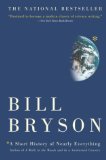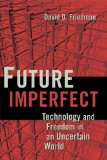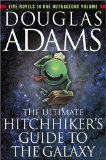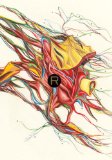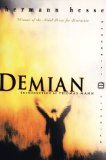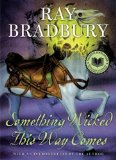Rant: An Oral Biography of Buster Casey by Chuck Palahniuk
Just read my third Chuck Palahniuk book Rant, which is an “oral biography” of a rabies-infected, super-messiah named Buster Casey (nicknamed “Rant”) who lives in a dystopic future where people plug-in to “boost peaks” (like watching a movie for all the senses), something that reminded me of The Matrix. In this dystopia there is a cultural dichotomy of “Daytimers” and “Nighttimers” that has been established to help deal with overpopulation — both groups coexist in the same space but never together (i.e. night and day). For fun nighttimers go “party crashing” whereby they tag other party crashers cars by bumping into them. A whole culture emerges out of this game.
A repeat theme of Rant from other Palahniuk books is rebellion against the self-imposed quarantining and numbing of humanity. Like in Fight Club, there’s this sense of despair over the loss of experiencing anything real. Crashing cars into each other de-isolates us. Self-inflicting spider bites (And other nasty critter bites) makes us feel alive even as we experience the pain. “Boosted peaks,” which are akin to heightened vicarious life-experiences as “produced” by others, are fought by the protagonist Rant as he spreads rabies (he may or may not be doing this intentionally). Rabies seems to inhibit anyone from boosting peaks.
All of the themes presented in Rant seem pertinent to our modern angst-ridden times. Palahniuk is a unique writer even as his characters seem a bit too similar at times (similar in their extreme strangeness perhaps), and sometimes his writing makes me feel downright dirty. Regardless, I’ve enjoyed everything of his I’ve read thus far.
A note on the book’s style — it is written as though you are hearing the various characters talk to you about Rant, their experiences with him, Party Crashing, etc. I enjoyed this style as it had a nice pacing and it made for an interesting, if not somewhat jarbled, storyline. Overall, even at only 300 pages, there is a lot that happens (and a lot to absorb), making Rant one of those books I could easily find myself rereading one day.
I definitely recommend it. And I hear Palahniuk plans to write two more installments that deal with Buster “Rant” Casey in the next two or three years. I look forward to them.
Update:
My brother-in-law, Michael Van Cise, who turned me onto Rant had this to say about the book:
In Rant, Chuck Palahniuk takes the reader on a wild ride where it’s difficult to separate reality from fiction. The title character, Rant Casey, intentionally infects himself with the venom of poisonous spiders, snake venom, and the rabies virus. Because he’s a sort of hybrid being/super-human (or at least a supercarrier of disease) he can survive the toxins and disease and uses the side-effects of the disease or toxin to his advantage. Specifically, spider venom gives him sustained erections and the rabies virus takes away his ability to “boost” (an escape undergone by characters in the book via a port located at the back of their necks through which they boost transcripts of things others have recorded), which enables him to achieve the mental state necessary to travel through time. The book could be categorized as science fiction given the ports as well as the fact that urban society is divided into daytimers and nighttimers. As with Fight Club and Choke, Chuck Palahniuk introduces medical knowledge and other factual information which is stimilating, whether or not its true (and I have not tried to verify the facts, medical or historical, though I assume some are created/fictional and others are actual). If you like Fight Club, you’ll enjoy Rant. There are revelation moments in the storyline of Rant just as in Fight Club. The story builds on itself, tidbits of information being released to the reader through various characters though things are more unresolved at the end of Rant than in Fight Club.
I’ll also note that Michael mentioned liking this book best amongst the three or four (?) Palahniuk books he’s read, which include Fight Club, Diary, and Choke. I happen to agree though I will never be able to say what a virgin reading experience of Fight Club would be as, like most people, I saw the movie first.
Update 2 (Today is Feb 21): More from Michael:
I was listening to NPR (www.pba.org) this morning and heard Garrison Keillor and his “Writer’s Almanac.” Today is Chuck Palahniuk’s birthday.
First, it appears I’ve been pronouncing his name wrong. Keillor pronounced it “puh LAH nik” (rhymes with “colonic”), as opposed to how I was saying it, like PAUL- uh- nick.
Apparently Chuck’s first novel, “Little Monsters” was rejected by publishers as being too crude (imagine that!). He had the idea for fight club after being in a fight, returning to work and having people pretend like they didn’t see him.
You can find the transcript of Keillor’s bit at writersalmanac.publicradio.org. [Y]ou can listen to it by clicking here.
